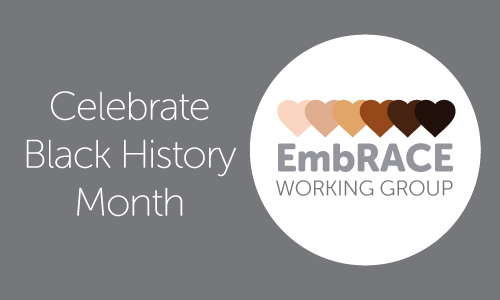Black History Month – Celebrating our Leaders & Pioneers

This article will take approximately 2 minutes to read
Published 5 Oct 2022 in Raising Awareness
It’s Black History Month (BHM) and today we seize the opportunity to honour the legacies of great leaders and pioneers and the accomplishments of those who are all too often forgotten in our history pages. Make sure you check back each week in October on Colleagues Connect as we celebrate BHM.
Why is Black History Month important and what are the origins?
Black History Month (BHM) is the very epitome of how achieved status transcends beyond classes of race. For some individuals it is a month of aspiration, a symbol of greatness in the face of adversity for others it is education, helping those who wish to learn and evolve, and setting differences aside to appreciate the true reality of what difference means.
But where did Black History Month start?
Dating back to 1926; American historian and a former son of slaves, Carter G Woodson opened the field of black studies to scholars, reviving the specialism in schools and colleges of black people, focusing on black contributions to society. Woodson above most knew the importance of education and believed it was key to reducing racial prejudices in his country. Over the years the focus of Black History Month has expanded its coverage to include the history of African, Asian and Caribbean people across the globe. Above all else, the month serves as an opportunity to share the benefits of enriched culture.
How did Black History Month make its way to these shores?
Akyaaba Addai-Sebo - a Ghanaian analyst, journalist and pan-African activist is credited with developing the recognition of Black History Month in the UK in 1987, In an interview Addai-Sebo revealed; “I was stirred up in the mid-1980s by the identity crisis that Black children faced as some brazenly would not identify with Africa and shrank when called an African”. Giving children a new sense of self became the main focal point in Akyaaba’s endeavours, as part of the Ethnic Minorities Unit in Central London, he and others set out to reform higher education in the UK and October would be the perfect month, “when the weather was not cold and children were fresh after the long summer vacation and had less to worry about exams and tests and the camaraderie was stronger as they shared experiences.” He and others launched lectures and concerts at the Royal Albert Hall for schoolkids to listen to inspirational music and motivational speakers thus supporting the beginnings of the many anti-racist and anti-apartheid campaigns which followed. His lectures were later compiled into the book Our Story: A Handbook of African History and Contemporary Issues, and year after year Black History Month in the UK would resurrect pride in one's identity and a sense of belonging.
Examples of Black Inventors who have made our lives better have included:
Mary Van Brittan Brown - Home Security System
Garrett Morgan - Three-Light Traffic Signal
Frederick McKinley Jones - Refrigerated Trucks
Alexander Miles - Automatic Lift Doors
Lewis Latimer - Carbon Light Bulb Filament
Elizabeth Anionwu – Sickle-cell specialist
Mark Dean - Gigahertz Chip & Color IBM PC Monitor
Nira Chamberlain - Mathematician
How do I find out more about Black History in Britain?
Over the course of BHM, we would like to discuss some stories that are thought-provoking or provide inspiration. Today we highlight Zadine Smith for those who want to look further into Black History for themselves, this is an example of a similar journey.
Zadine Smith, is a novelist and the author of White Teeth, The Autograph Man and On Beauty. When drawing on the inspiration for her writing, she found a book by Gretchen Gerzina's 1995 book about the secret history of Black England. Smith explains the book;
“It’s incredible to think of now, but by 1999 I’d gone through 15 years of formal education, including a three-year English degree, without ever being given a book to study that made any reference whatsoever to the presence of individuals like me in the country in which I was born. Not a novel, not a history book. Nothing.”
An example of finding relative history that has an impact on how we view society today.
Smith’s own books, such as White Teeth and On Beauty, pull knowledge of unfamiliar cultures and races and how they mix in modern society. But finding the information needed to be self-taught, due to a lack of information regarding diversity in the education system.
If you would like to hear of more events across the UK, please click here.
Would you like to share personal or related stories with the EmbRACE group, either for BHM or another time in the year? Please send recommendations or articles to the EmbRACE group here.







